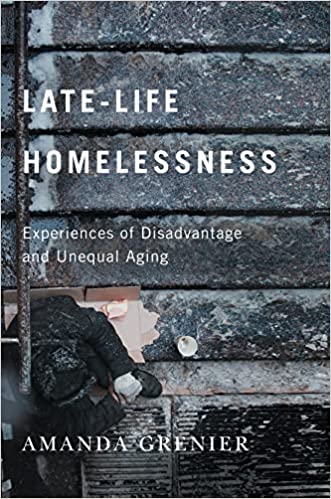Late life homelessness: Experiences of disadvantage and unequal aging
Around the world and across a range of contexts, homelessness among older people is on the rise. In spite of growing media attention and new academic research on the issue, older people often remain unrecognized as a subpopulation in public policy, programs, and homeless strategies. As such, they occupy a paradoxical position of being hypervisible while remaining overlooked.
Late-Life Homelessness is the first Canadian book to address this often neglected issue. Basing her analysis on a four-year ethnographic study of late-life homelessness in Montreal, Canada, Amanda Grenier uses a critical gerontological perspective to explore life at the intersection of aging and homelessness. She draws attention to disadvantage over time and how the condition of being unhoused disrupts a person’s ability to age in place, resulting in experiences of unequal aging. Weaving together findings from policy documents, stakeholder insights, and observations and interviews with older people, this book demonstrates how structures, organizational practices, and relationships related to homelessness and aging come to shape late life.
Situated in the context of an aging population, rising inequality, and declining social commitments, Late-Life Homelessness stresses the moral imperative of responding justly to the needs of older people as a means of mitigating the unequal aging of unhoused elders.


I am looking forward to reading this book as the topic is relevant in Manitoba’s aging population and lack of suitable/affordable housing.
One could look at the existing 61% of homeowners here in MB live in them alone. Considering a cooperative relational exchange might provide social and housing needs that both can benefit from without putting the social pensions in jeopardy.